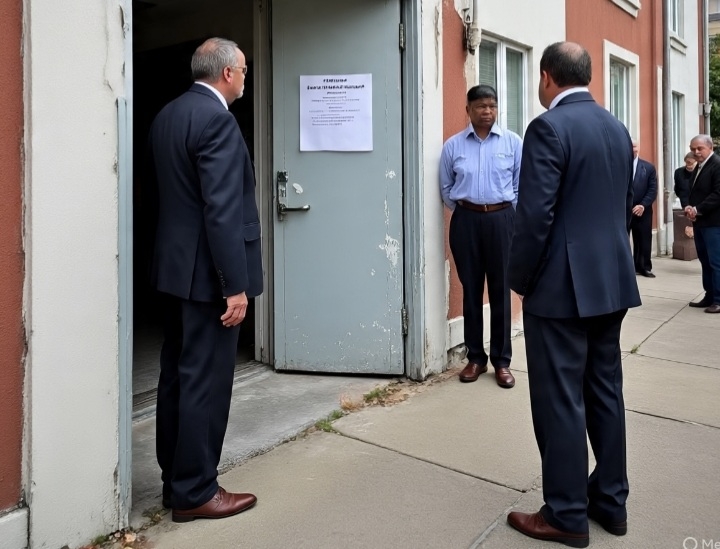Lake Properties Lake Properties
Don’t pour money into expensive, highly personal, or partial upgrades that buyers will change anyway (full kitchen remodels, luxury finishes, ultra-personal décor). Focus on clean, neutral, functional, and safe — fix deal-breaking systems and obvious safety/inspection issues, but skip costly aesthetic choices buyers will replace.
What you should not fix — and why
Below are common things sellers waste money or time on, with short explanations and exceptions.
1. Full high-end remodels (kitchens, bathrooms, room additions)
Why not: high cost, low guaranteed return; project can delay sale and create buyer uncertainty. Exception: if your neighborhood commands premium finishes (e.g., a remodel simply to match comps) or you’re staying long-term and want the upgrade.
2. Trendy or highly personalized finishes
Examples: loud wallpaper, neon paint, ultra-modern fixtures, themed rooms. Why not: buyers may be put off and will likely replace these items to suit their taste. Exception: neutralize — paint over extremes rather than replacing whole systems.
3. Partial renovations / mismatched upgrades
Examples: new countertops but old cabinets, one new bathroom in an otherwise dated home. Why not: highlights what’s unfinished and can lower perceived value. Exception: if the partial upgrade makes the space fully functional and looks cohesive.
4. Expensive landscaping features
Examples: ornate ponds, expensive mature plantings, complex irrigation systems. Why not: costly, ongoing maintenance, and buyers may see them as extra work/cost. Exception: simple curb-appeal boosts (mulch, trimmed hedges, fresh plants) are worthwhile.
5. Replacing older-but-functional items
Examples: older but working windows, a ten-year-old HVAC that still performs, appliances that work. Why not: buyers accept reasonable age if systems function; replacement cost often not recouped. Exception: if an item is failing, unsafe, or greatly reduces curb appeal.
6. Re-doing floors just because you prefer another material
Why not: buyers often change flooring to their taste; ripping out floors can backfire. Exception: badly damaged floors or flooring that will deter buyers (pet-soaked carpet, buckling).
7. Small, frivolous upgrades with low ROI
Examples: designer light fixtures, high-end bathroom accessories, boutique tiles. Why not: luxury taste is subjective and rarely increases sale price by its cost.
8. Cosmetic “band-aids” that conceal problems
Examples: painting over mold/water stains without addressing the leak, plastering cracks without fixing foundation movement. Why not: inspectors or buyers will find root issues later; concealment risks legal problems and renegotiation. Exception: for purely cosmetic stains with known, fixed causes, a paint touch-up is fine — but keep documentation.
The exceptions (when you should fix)
Some “not worth it” items become MUST-fix quickly:
- Safety hazards: exposed wiring, broken handrails, gas leaks — fix immediately.
- Structural or active water issues: roof leaks, active foundation movement, severe rot.
- Pest infestations (termites, rodents) — must be remedied and documented.
- Failing major systems that will kill the sale or appraisal (non-working HVAC in extreme climates, major plumbing failure).
- Code/permit problems that would prevent transfer or mortgage approval in your market.
- Anything that would fail a standard home inspection and be a deal-breaker in your area.
If in doubt: if it’s likely to kill financing or an inspection report, fix it.
Why “don’t fix” advice works (buyer psychology & comps)
- Buyers often want to customize. They mentally subtract your aesthetic choices and imagine their own.
- Over-improving beyond comparable homes in the neighborhood rarely increases the top market price — buyers compare to comps.
- Simple, clean, move-in-ready homes sell faster and attract more offers; expensive bespoke improvements can narrow the buyer pool.
What you should do instead (highest ROI / impact)
Spend on things that maximize buyer appeal and minimize objections:
High-impact, low-cost (very recommended)
- Fresh, neutral paint throughout main living areas.
- Deep cleaning (carpets, windows, grout).
- Decluttering and depersonalizing (pack family photos, remove knickknacks).
- Fixing small but visible issues: leaky faucets, sticking doors, burned-out lights, cracked tiles in high-visibility spots.
- Curb appeal basics: mow, trim hedges, power wash driveway/siding, add potted plants.
Moderate-cost, good ROI
- Replace tired light fixtures and switch plates with neutral, inexpensive options.
- Re-caulk grout lines in bathrooms, fix toilet runs.
- Replace old carpet (if stained/worn) — or clean thoroughly.
- Update hardware (cabinets, door handles) for a fresh look without full remodel.
When to consider bigger updates
- If comps show recently renovated kitchens/baths and your home needs to compete in that tier.
- If the current condition prevents financing or inspection approval.
Decision guide — how to decide what to fix
- Safety / Function First: Anything unsafe or that prevents sale — fix.
- Inspection Killers: If an inspector will identify it as a major defect, fix it.
- First-impression Issues: Visible dirt, bad odors, peeling paint — fix them.
- High-cost vs high-return: Avoid high-cost projects with low resale ROI.
- Neighborhood Benchmark: Don’t over-improve above neighborhood comps.
- Time & Disruption: Don’t start long projects that delay listing or create living hassles unless they’re necessary.
Negotiation options instead of fixing
If a buyer wants work done, these are alternatives to doing it yourself:
- Offer a credit at closing for repairs (buyer can choose contractor).
- Lower the price slightly rather than completing an expensive remodel.
- Provide inspection/repair receipts for recently fixed issues to reassure buyers.
- Use an as-is listing with a realistic price if you don’t want to do repairs — but expect fewer offers.
DIY vs contractor
- DIY good: painting, decluttering, small tile re-grout, minor carpentry when skilled.
- Hire pro: electrical, plumbing, structural repairs, major roofing, HVAC — shoddy DIY here causes escrow/legal headaches.
Timing & staging considerations
- Don’t start projects that delay professional photos — photos are critical for marketing.
- If renovating, schedule completion before listing so the house can be shown as finished.
- Staging (rented or DIY) often yields better returns than extensive renovations.
Inspector & appraiser perspective
- Inspectors look for safety, structural, moisture, and mechanical system issues. Cosmetic fixes won’t impress if there are underlying problems.
- Appraisers compare to comps — expensive personal upgrades don’t always raise appraised value unless they move the home into a higher comp bracket.
Quick pre-listing checklist (what to do — short & actionable)
- Clean, declutter, depersonalize.
- Touch-up paint with neutral colors.
- Fix leaky taps, running toilets, and burned-out lights.
- Secure and remove obvious trip hazards; fix handrails.
- Power-wash exterior and tidy the garden.
- Replace cracked glass panes and torn screens.
- Remove strong odors (pets, smoking) — professional cleaning if needed.
- Gather warranties, manuals, and receipts for recent repairs.
Common seller mistakes to avoid
- Over-improving beyond the neighborhood.
- Hiding problems (legal/ethical risk).
- Doing a partial job that looks worse than the original.
- Letting a project go unfinished when photos have already been taken.
- Spending on “nice-to-have” luxury items that won’t attract buyers.
Market context matters
- In a hot seller’s market, buyers will tolerate more cosmetic issues — you can skip more fixes.
- In a buyer’s market, buyers will negotiate harder — polishing small issues becomes more important. Talk to your listing agent about local conditions and recent sales (comps) before deciding.
Final decision rule
Ask two questions for each item:
- Will this deter or scare off buyers or fail inspection? If yes → fix.
- Will this cost me more than I will likely recover in price or time to sell? If yes → don’t do it.
Lake Properties Pro-Tip
Spend your time and budget on clean, neutral, and functional improvements: fresh paint, deep cleaning, curb appeal basics, and fixing safety/inspection items. For everything else, consider pricing smartly, offering a credit, or letting the buyer remodel to their taste.


















